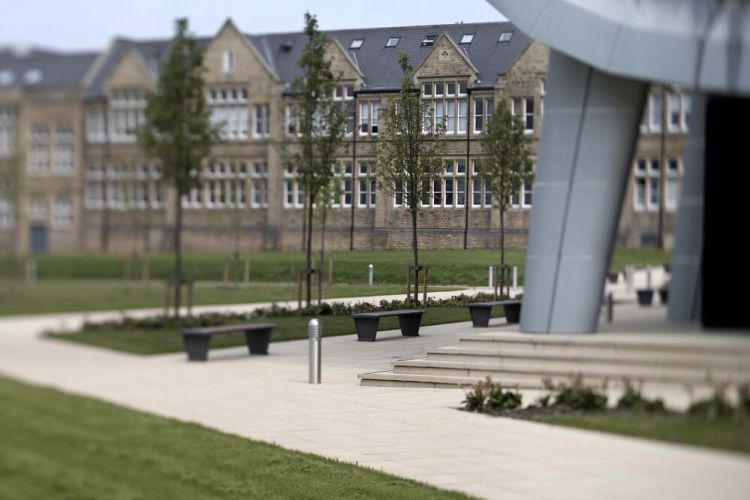2021 CERIC Doctoral Conference - The Future of Work in a Post-Covid World

- Date: Friday 21 May 2021, 09:00 – 17:00
- Location: Online
- Type: Online, Conferences
- Cost: 0.00
The Centre for Employment Relations, Innovation and Change warmly invites Postgraduate Researchers at all stages to the Conference.
Register here to attend the conference.
The Centre for Employment Relations, Innovation and Change (CERIC), based at the University of Leeds is one of the largest interdisciplinary groups of social scientists working in the field of work and employment in the UK.
The theme for this year’s conference is ‘The Future of Work in a Post-Covid World’. Covid-19 has sparked radical shifts in living and working habits and brought about an unprecedented shift online of people's day-to-day lives. As we face the ongoing impact of the pandemic, its toll on individuals, organizations and society are yet to be understood and examined thoroughly. To this end, this conference will cover a broad spectrum of disciplines related to:
1) The impact of digitalization on work and employment;
2) Inequalities (race, gender, class, (dis)ability) in a post-Covid world;
3) The role of human resources management in a changing environment.
Conference Programme
09:00 – 09:15 – Welcome speech by Professor Mark Stuart, Founding Director of CERIC, Montague Burton Professor of Human Resource Management and Employment Relations, Leeds University Business School Pro Dean for Research
09:15 – 10:00 – Keynote Speech: Platform labour unrest in global perspective: where, when and how do platform workers protest? by Dr Ioulia Bessa and Dr Charles Umney, University of Leeds
10:00 – 11:30 – Session 1 (2 breakout rooms)
1. Digitalisation and Labour Process Theory
a. Heiner Heiland (Technical University Darmstadt, Germany): The Social Construction of Algorithms - Influence of and Influence on Algorithmic Management
b. Mattia Dessì (University of Leeds, UK): Capitalist transformation and the fourth industrial revolution: mechanisation and automation in the South African mining industry
c. Carl Wikeley (University of Leeds, UK): Music listening @ work
d. Despoina Georgiou (University of Cambridge, UK): Digital Platforms and the One-Sided Shifting of Risks: A Way Forward
2. Human Resources Management
a. Jaejin Lee (University of Leeds, UK): Why do organisations get bogged down in using HR analytics?
b. Ester Bolt (Taylor’s University, Malaysia): Why do nurses quit?
c. Shamirul Islam (Taylor’s University, Malaysia): How high involvement work systems enhance employee competence: evidence from a nationalised and private commercial bank
d. Caroline Hewitt (Sheffield Hallam University, UK): The Gangmasters & Labour Abuse Authority and Precarious Workers In The UK
11:45 – 13:00 – Session 2 (2 breakout rooms)
3. Platform Work & Global Protest
a. Joanna Octavia (University of Warwick, UK): Protests in the digital age: the organisation and mobilisation of platform-based motorcycle taxi drivers in Indonesia
b. Denis Neuman (University of Leeds, UK): Conditions for Successful Outcomes of Labour Disputes in the Platform Economy
c. Tiago Vieira (Autonomous University of Barcelona, Spain): A critical overview of the Spanish “sí soy autónomo” movement
4. Women's Experiences of Atypical Work during COVID-19
a. Tess Herrman (University of York, UK): The interconnectivity of the sex industry
b. Bethan Taylor (Birbeck, University of London, UK): Running Through A Pandemic: the impact of COVID-19 on the priorities of female ultra-runners in the UK
c. Anthonia Ishabiyi (University of KwaZulu-Natal, South Africa): The impact of COVID-19 on South African women in the informal economy
13:00 - 13:30 – Lunch Break
13:30 – 14:45 – Session 3 (2 breakout rooms)
5. Work and Life in the Gig Economy
a. Carlos Alvarez (Northumbria University, UK): When Work Becomes your Life: An Exploratory Diary Study of Online Freelancers’ Work-Life Boundaries during COVID-19 Restrictions
b. Roopa Nandi (University of Leeds, UK): The working life of creative workers
c. Moon Sultana (University of Aberdeen, UK): Experiences of Bangladeshi Women with Blogging and Vlogging
6. Stigma & Stereotype in Gender Inequality
a. Clare Matysova (University of Leeds, UK): Shared Parental Leave - A catalyst for progressing gender equality or a reinforcement of the status quo?
b. Andrea Talarico (University of Ottawa, Canada): What is the Point of Equality in your Telework Policy?
c. Ne Ma (University of Leeds, UK): Being labelled as “leftover women”: professional identity and career trajectory of single working women in China
15:00 – 16:30 – Session 4 (2 breakout rooms)
7. Professional Career Experiences
a. Jack Daly (University of Leeds, UK): Institutionalised hegemonic masculinity and the gender pay gap in the professional services sector.
b. Paula Tumulty (University of Limerick, UK): The Challenges and Tensions Associated with Precarious Work in Academia
c. Rachel Newman (University of Lancaster, UK): Presenteeism and mental health
d. Sarah Spence (University of Leeds, UK): Close to Home: Reflexivity, and Midwives under pressure in the time of COVID
8. Social mobility, Vocational & professional inequality
a. Xiaorui Xing (University of Leeds, UK): Understanding labour migration in China: a multi generation study of migrant working lives
b. Karen Tatham (University of Leeds, UK): 'Do you see what I see?’ vocational routes to higher skilled work :actor positionality, local skills partnerships, and young people’s job opportunities
c. Vani Naik (Loughborough University, UK): Gender inequality in UK engineering professoriate
d. Joanne Burgess (University of Leeds, UK): Gender segregation in vocational education
16:30 – 17:00 – Closing Ceremony

